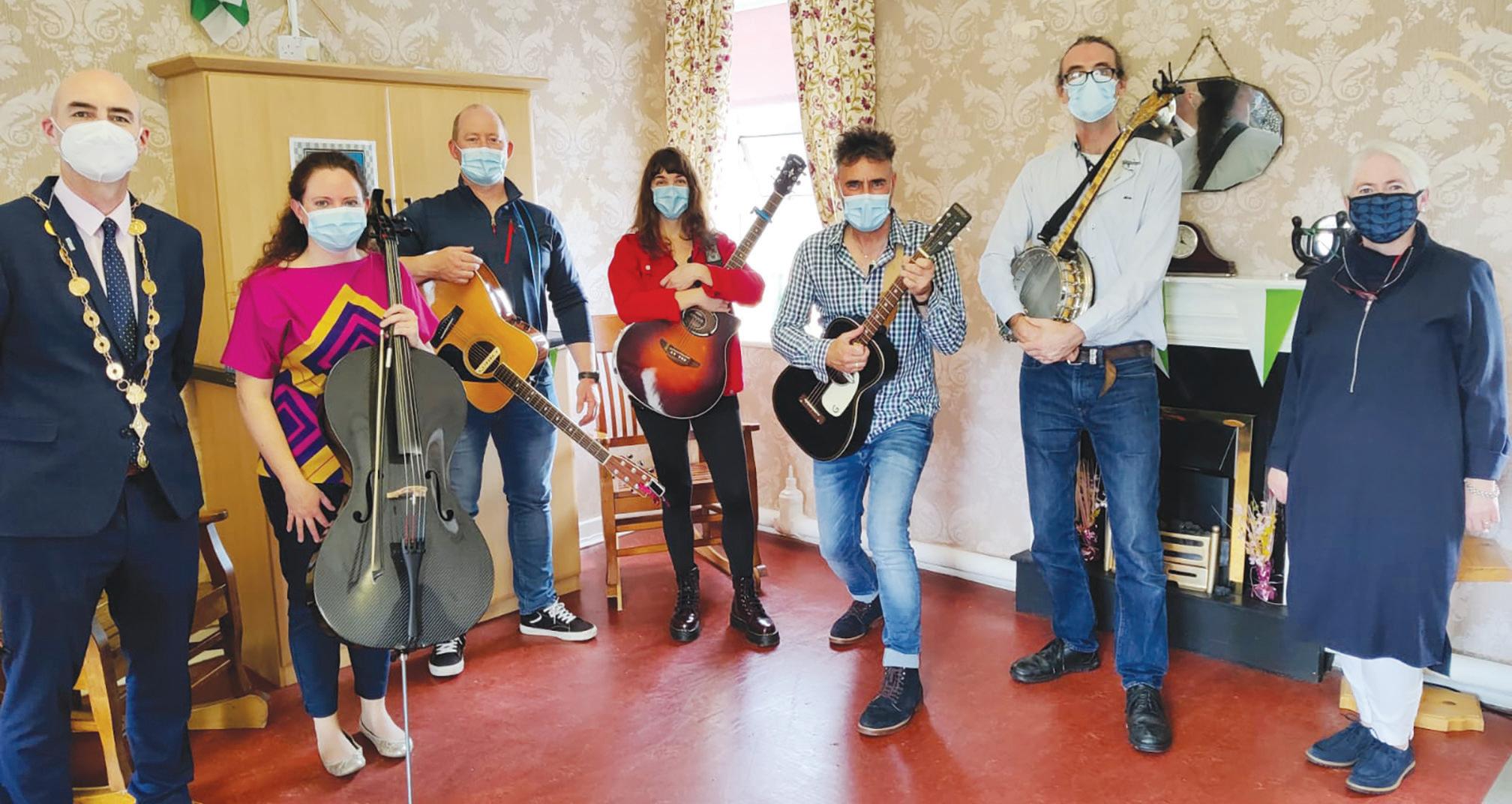
3 minute read
Digital initiative to prevent future cardiac arrests
2019-2024 there will be an 14.5% increase in 65-84 year olds and an 18.8% increase in people over the age of 85 years. Evidence shows that the prevalence of LUTS is higher in the elderly population, increasing the demand on urology services,” said Christine.
“Sláintecare means providing safe, quality healthcare close to the patient’s home. One stop ANP clinics result in decreased waiting times, earlier access to care and hospital avoidance which result in increased patient satisfaction.”
Rachel Kenna is the Chief Nursing O cer in the Department of Health. Rachel is a Registered Children’s and General Nurse (RCN/RGN) and has extensive clinical and managerial experience. She previously held the Director of Nursing post in Children’s Health Ireland at Crumlin. Rachel is using her position to highlight the work of Advanced Nurse Practitioners (ANPs) and Advanced Midwifery Practitioners (AMPs) across the system.
“I joined the Department of Health in 2018 as a Deputy Chief Nursing O cer and, in 2020, was appointed as Chief Nursing O cer. It has been an honour to hold this role throughout the COVID-19 pandemic at a time when nurses and midwives the length and breadth of the country continually went above and beyond to deliver excellent, compassionate, and expert care to patients,” she said.
“As nursing and midwifery evolve to continue to meet patient needs and service challenges, caring for patients at the centre of a network of integrated care is becoming ever more important.”
A recent evaluation has provided evidence of the emerging impacts ANPs and AMPs are having on patient care, waiting times, patient outcomes and service integration, in line with Sláintecare objectives.
“ANPs and AMPs are delivering personcentred care in integrated care settings across the country. They can provide a full episode of care for patients, including assessment, intervention, prescribe medication, ongoing monitoring, management and discharge of the patient.
“Together, they are operating at the top of their licence to provide optimum patient care through integrated care pathways.
“Therese, Sinéad and Christine’s work in the field of urology in the Saolta Hospital Group is a prime example of the full scope of the ANP role. It is very clear that the patient is at the centre of everything they do, and listening to the patient, listening to what they want is key to delivering Sláintecare reform.”
The Final Evaluation Report on the Impact of Implementing the Draft Policy on Graduate, Specialist and Advanced Nursing Practice September 2020 can be found here: https://www.gov.ie/en/ publication/55c2c-fi nal-evaluation-report-onthe-impact-of-implementing-the-draft-policyon-graduate-specialist-and-advanced-nursingpractice-september-2020/
New digital health initiative helps prevent future cardiac events
An innovative digital cardiovascular disease prevention and recovery programme developed by Croí, the Irish heart and stroke charity, has delivered signifi cant health improvements for participants.
The Croí MySláinte programme, funded by the Government of Ireland’s Sláintecare Integration Fund 2019, had to be delivered virtually due to restrictions on traditional healthcare delivery imposed as a result of the COVID-19 pandemic.
Croí’s pivot to virtual delivery involved the creation of a newly-developed interactive platform, which enabled participants to access the programme from the comfort and safety of their home, including access to pre-recorded videos, resources and links to weekly live Zoom sessions. The core components of the programme included lifestyle modifi cations such as smoking cessation, healthy food choices and physical activity; medical risk factor management of blood pressure, cholesterol and glucose; and electronic prescribing of cardio-protective medication where appropriate.
A total of 105 people, who had experienced a cardiac event such as a heart attack, opted to take part in the initiative. Participants were aged between 35 and 84 years, and were referred from cardiac centres across the west of Ireland, including Galway, Mayo, Sligo, Limerick and Donegal. Following a total of 423 virtual consultations over a period of 12 weeks, a range of health improvements resulted for those involved, including: • Physical activity levels increased almost six-fold • Blood pressure control improved from 24% to 68% • LDL cholesterol target achievement increased from 14% to 41% • Over half of participants (57%) lost more than 2% of their bodyweight, with almost a quarter (23%) losing 5% or more • Anxiety and depression levels among participants were reduced by more than half.
The programme, which was overseen by a consultant cardiologist, was delivered by a specialist interdisciplinary health team comprised of a cardiovascular nurse prescriber, a physiotherapist and a dietitian.
Irene Gibson, PhD candidate and Director of Programmes and Innovation, National Institute for Prevention and Cardiovascular Health; Neil Johnson, Chief Executive, Croí; and Dr Lisa Hynes, Head of Health Programmes, Croí.










